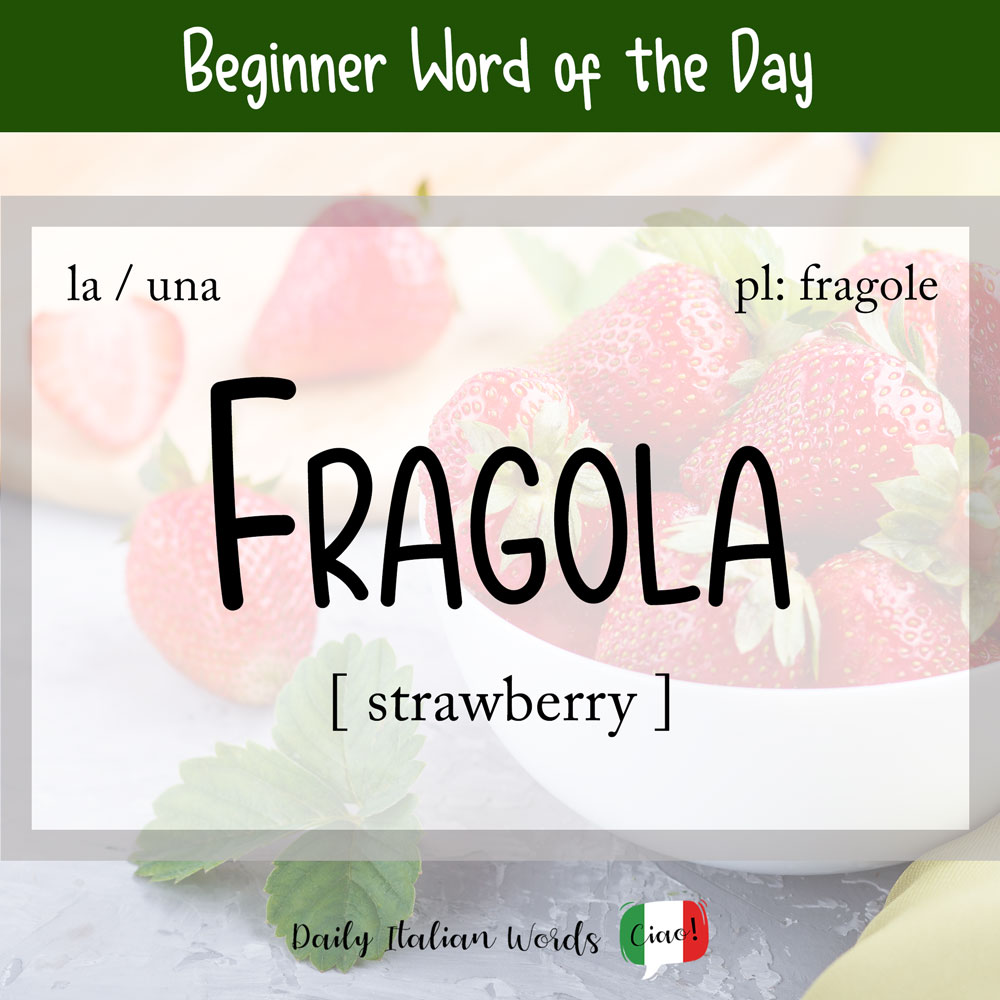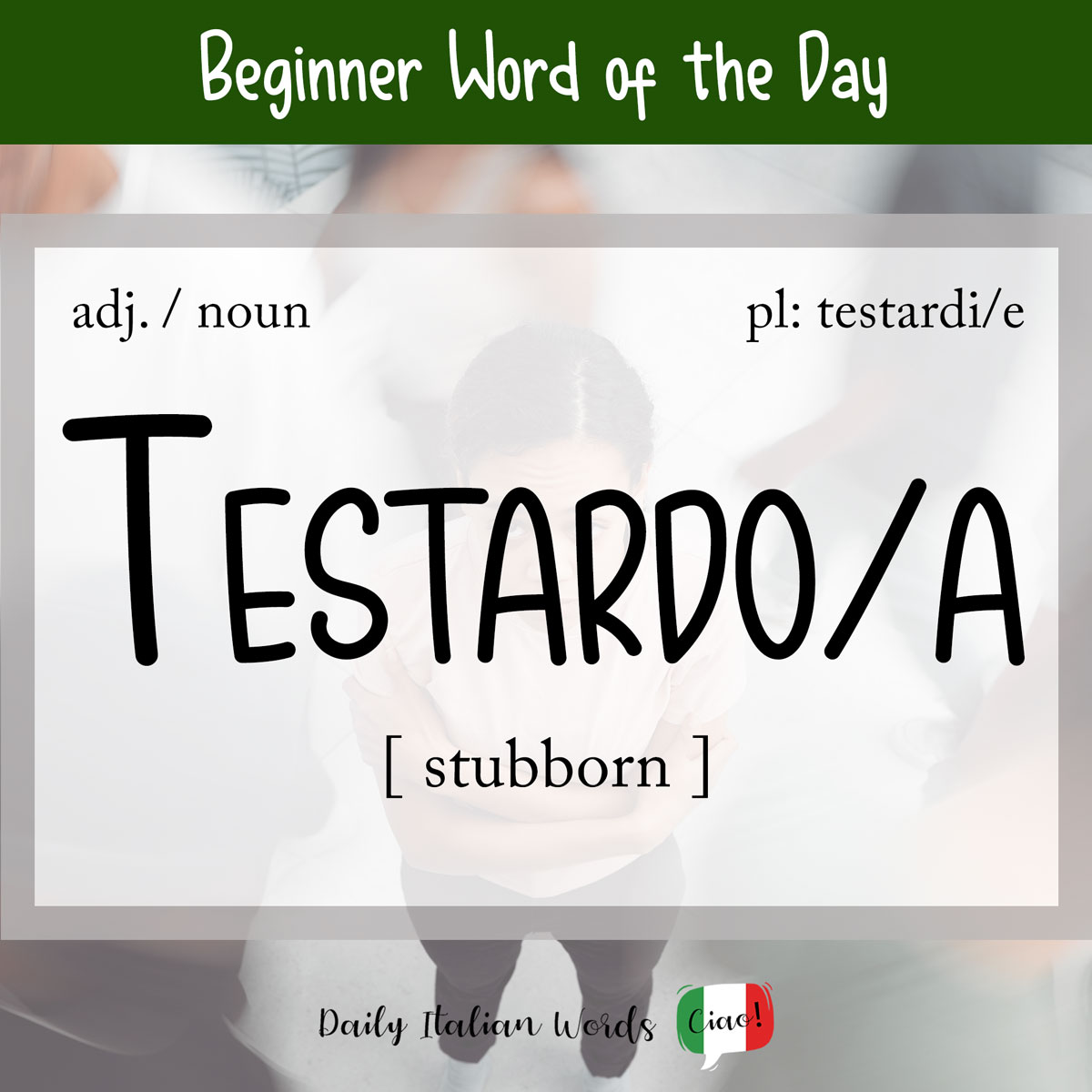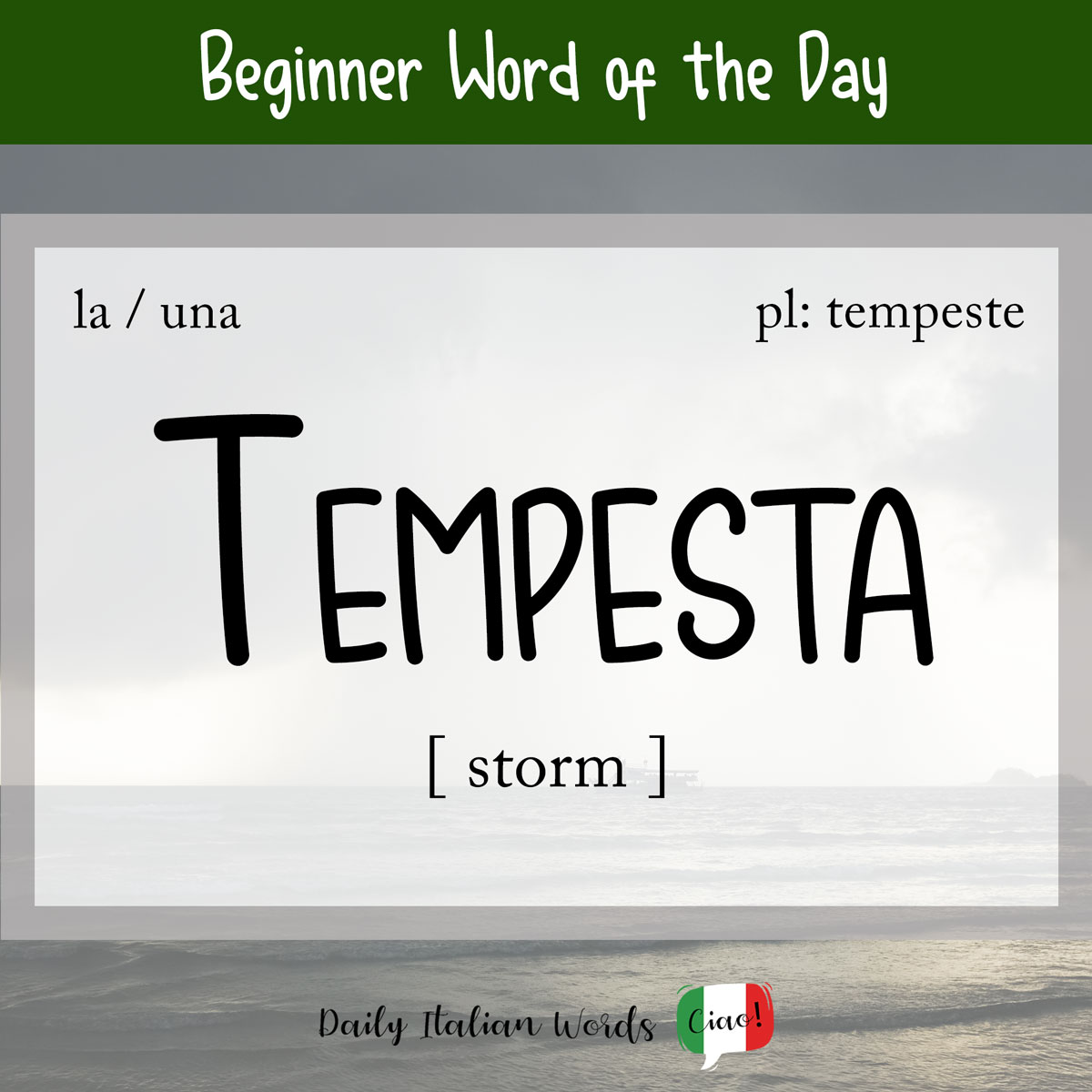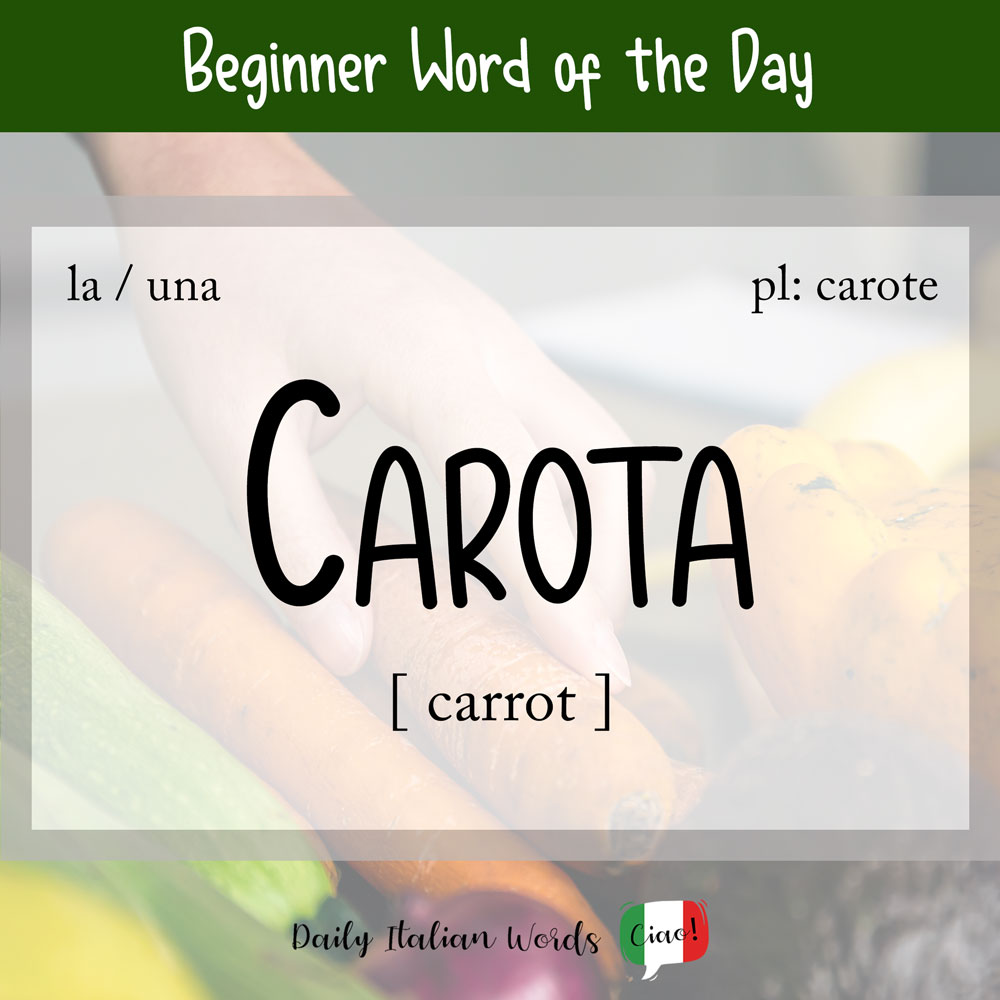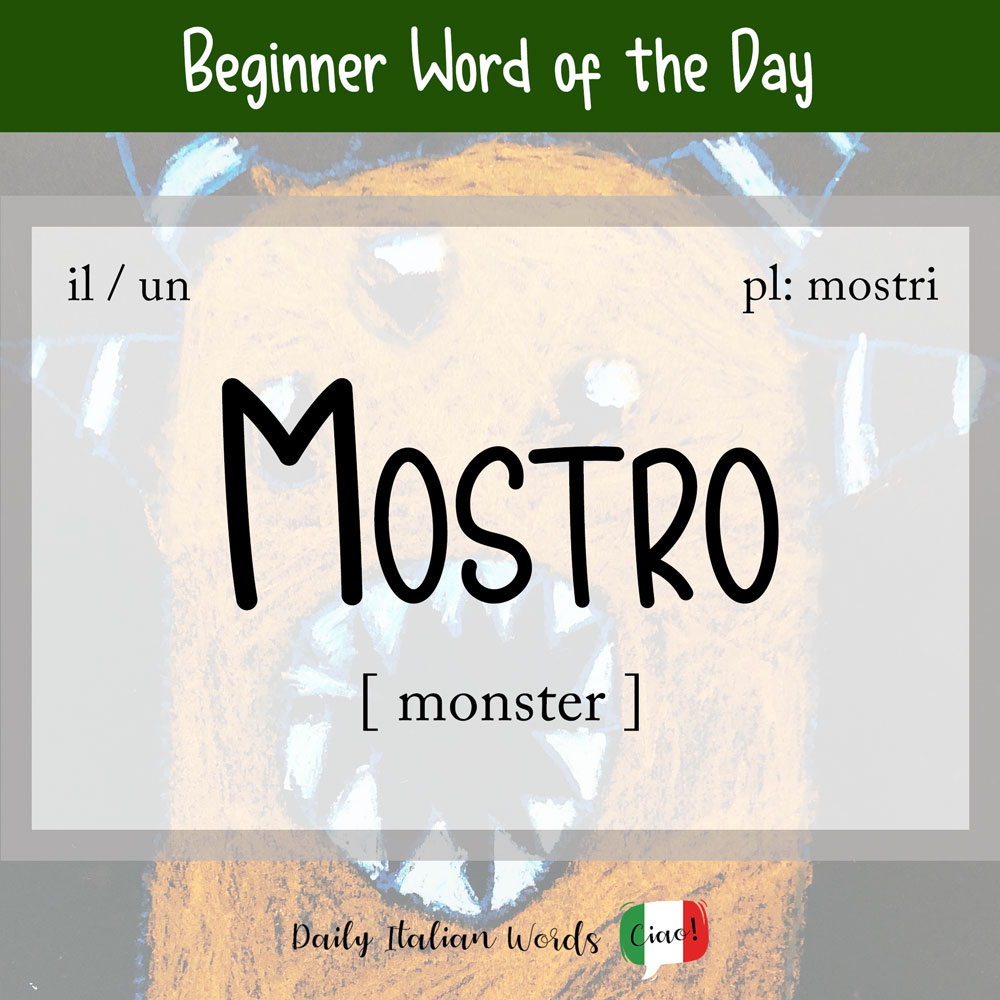Italian Word of the Day: Fragola (strawberry)
Summer is the season for strawberries, which are known as fragole (feminine, singular: fragola) in Italian. Just as in English, the word refers to both the plant and the fruit it produces. The common variety we buy from stores and markets tend to be grown in large strawberry fields (campi di fragole) by farmers and …

